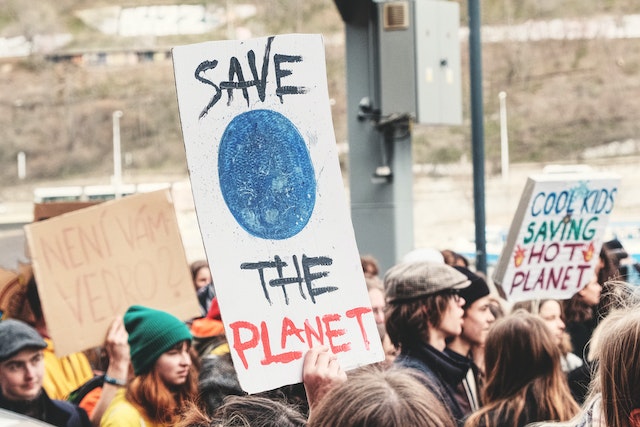On the 15th of July 2022, Food System Transformations as 2030 Agenda Accelerators took place at the High-Level Political Forum (HLPF) as a follow-up event to the UN Food Systems Summit. The event was jointly organised by the UN Food Systems Coordination Hub, the Committee on World Food Security (CFS), and co-hosted by the Governments of the Dominican Republic, Kenya, Nigeria, Spain and Portugal. Almost a year ago, the UN Food Systems Summit (FSS) was held, and one of the key outcomes was the actionable commitments by Heads of State and Governments through statements and national pathways.
Thus, the purpose of this event was to exhibit Member States’ tracks and critical issues of focus, understand Member States’ needs, opportunities and barriers to implementing food systems transformation strategies, and link national trajectories to the ecosystem of support. The agenda was also focusing on promoting food systems transformation into legal frameworks and political processes and underlining the vital importance of inclusive governance and accountability at all levels.
The current multi-layered planetary crises
All speakers highlighted that we are going through a period with three shocks at once: COVID-19, climate change, and a war conflict. These stresses can affect each other and are triggering a global food crisis. Strong changes in land use and increasing urbanisation bring animals and humans closer, accelerating zoonotic disease transmission rates. Climate change is also exacerbating the rate of zoonic events, as it forces humans and animals to migrate together towards climate-safe zones. During a pandemic, food production and supply chain are disrupted, which may provoke food crises and food insecurity.
The Ukraine war is also accelerating climate change through severe environmental impacts. Warfare activities such as bombing, trenches, and tunnel excavations contribute adversely to soil degradation and harm landscape morphology. These affect current and future food production, especially in Ukraine since it holds some of the most fertile soils worldwide. The Russian military aggression also poses major disruptions further in the food chain, such as food security issues, as highlighted by Anders Grönvall, Sweden’s State Secretary to the Minister for Climate and the Environment. For instance, Pakistan was strongly relying on wheat imports from Ukraine and Russia, which is no longer available, and wheat has, thereby, become very costly, as pointed out by Ahsan Iqbal, Pakistan’s Federal Minister for Planning, Development and Reform.
However, the representative of the Russian Federation asserted that the current global food crisis is the result of the global macroeconomic turmoil and is not related to the Ukraine conflict. He also evoked that if sanctions are to be applied to the entry to ports of specific vessels from Russia, it will negatively affect the food supply chain.
Building up a more resilient food system and improving food security
“Food production and food systems should be regarded as a vital part of the solution to our common global challenges.” – Anders Grönvall, Sweden’s State Secretary to the Minister for Climate and the Environment.
Jennifer Cooper, Liberia’s Minister of Agriculture, shed light on the importance of looking at integrated farming practices to cope with various potential shocks. Fabio Cassese, Director General of Italy’s International Cooperation, Ministry of Foreign Affairs, and Ahsan Iqbal mentioned that investing in sustainable local food systems and production will benefit the most vulnerable population by enhancing their food security. The shortage of fertilisers emphasises the issue of mainly relying on the supply of a few countries. As such, farmers must use fertilisers more efficiently and use sustainable alternative means, as stressed by Anders Grönvall.
Food loss and waste are also concerning issues. If solved, they can contribute to enhancing food security worldwide, as a study in 2011 showcased that approximately one-third of the food produced is wasted. A new method was developed to measure accurately the amount of food loss in Sweden to become aware of the potential benefits of addressing food loss and waste. At the same time, Spain will implement a law to scale down food waste in Spain, as pointed out by Pilar Cancela Rodríguez, Spain’s Secretary of State for International Cooperation.
What are concrete measures steering towards fairer, and more sustainable food consumption and production?
Numerous speakers stressed that joint actions through multilateral deliberations must boom to curb the current crises and ensure a prosperous future. Pilar Cancela Rodríguez and the representative of the Russian Federation underscored that humanitarian food aids are essential to fight food price inflation. CFS is a relevant initiative in this regard as it is a platform creating a nexus of multi-stakeholders across sectors. Investments in research and innovation along the entire food chain must be carried out, as raised by Fabio Cassese, Anders Grönvall, and Stefanos Fotiou, Director, UN Food Systems Coordination Hub.
The priority of increasing youth participation in all processes was also highlighted, based on the evidence that 49% of the global population comprises people under 13, as underlined by Treasa Cadogan, the United Nations Youth Delegate for Ireland. Nature-based solutions and ecosystem-based approaches will also nurture the achievement of zero hunger while safeguarding the planet, as emphasised by the representative of Portugal. Food producers and marginalised communities must be at the core of policymaking decisions to promote inclusivity by considering populations’ legitimate needs and interests, as stipulated by Jordan Treakle, Civil Society and Indigenous Peoples Mechanism Representative. For instance, in Nigeria, one of their essential priority areas is to develop access to food production resources for youth and women, as mentioned by the representative of Nigeria.
“Responding to the current food crisis implies accelerating food systems transformation, not postponing or delaying.” – Gabriel Ferrero y de Loma-Osorio, CFS Chairperson, Ambassador at Large Global Food Security, Ministry of Foreign Affairs, European Union and Cooperation, Spain.
To finish, striving to shape adequate, fair, nutritious, sustainable and inclusive food systems presents some trade-offs. Above all, such a food system necessitates political, social, financial, and knowledge capital, as pinpointed by Gabriel Ferrero y de Loma Osorio.
Written by David Mingasson, SIANI reporter.
